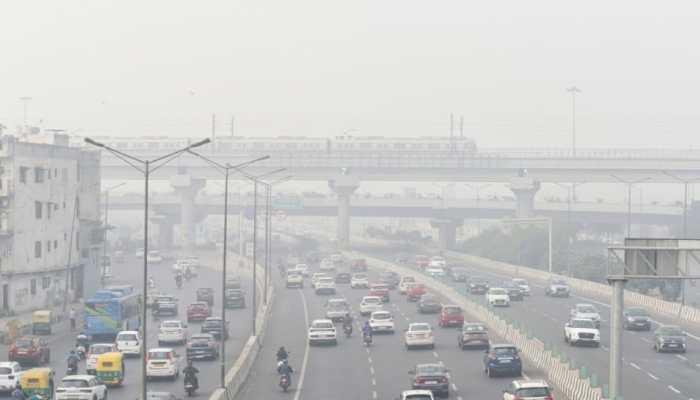Delhi Air Pollution: Govt. Bans BS-III Petrol, BS-IV Diesel 4-Wheelers Amid 'Severe' AQI; Rs 20,000 Fine For Violators
This measure comes as part of the Graded Response Action Plan (GRAP-III), which aims to combat severe air pollution levels.
Trending Photos
) P.C- ANI
P.C- ANI The Delhi government has implemented a ban on BS-III petrol and BS-IV diesel four-wheelers in the national capital . This measure comes as part of the Graded Response Action Plan (GRAP-III), which aims to combat severe air pollution levels.
Under the new order, any vehicle found violating the ban will face severe penalties. The government has specified that offenders will be prosecuted under Section 194(1) of the Motor Vehicle Act, 1988, with a fine of Rs 20,000. The banned vehicles include:
BS-III petrol and BS-IV diesel four-wheelers
Diesel-operated Medium Goods Vehicles (MGVs) of BS-III standards or below registered in Delhi, except those carrying essential commodities or providing essential services.
Diesel-operated Light Commercial Vehicles (LCVs), particularly goods carriers, registered outside Delhi, unless transporting essential goods or services.
Additionally, Inter-State buses from NCR states, which are not EVs, CNG-powered, or BS-VI diesel, will be prohibited from entering Delhi, except those with All India Tourist Permits.
Graded Response Action Plan (GRAP-III) Activated
The Graded Response Action Plan (GRAP-III) has been invoked by the Commission for Air Quality Management (CAQM) to address the worsening air quality in Delhi-NCR. With the Air Quality Index (AQI) in the "severe" category, this stage of the action plan has been activated from 8 am on Friday, marking a significant escalation in the city's efforts to tackle air pollution.
Measures Under GRAP-III to Combat Pollution
To mitigate the effects of the severe air quality, the Delhi government will implement several measures under the GRAP-III guidelines:
- Intensified road sweeping: Increased frequency of mechanized sweeping on major roads and traffic corridors.
- Water sprinkling: Daily water sprinkling along roads and right of ways, particularly in hotspots and high-traffic areas, to reduce dust.
- Dust suppressants: Use of dust suppressants to control airborne particulate matter.
- Ban on construction and demolition activities: All construction, earthworks, and transportation of demolition waste will be halted.
Additional Measures to Improve Air Quality
Enhanced public transport services: Increased frequency of public buses to encourage the use of public transport.
Differential pricing: Pricing strategies to encourage travel during off-peak hours, reducing congestion and emissions during peak traffic times.
AQI Levels and Stages of GRAP
The Graded Response Action Plan classifies air quality levels into four stages based on AQI readings:
- Stage I: 'Poor' (AQI 201-300)
- Stage II: 'Very Poor' (AQI 301-400)
- Stage III: 'Severe' (AQI 401-450)
- Stage IV: 'Severe Plus' (AQI >450)
This year, Stage III measures have been invoked later than in 2023, when the plan was activated on November 2nd. The current implementation of GRAP-III supplements the ongoing Stage-I and Stage-II measures already in place to tackle air pollution in Delhi-NCR.
Stay informed on all the latest news, real-time breaking news updates, and follow all the important headlines in india news and world News on Zee News.
Live Tv







)
)
)
)
)
)
)
)
)
)
